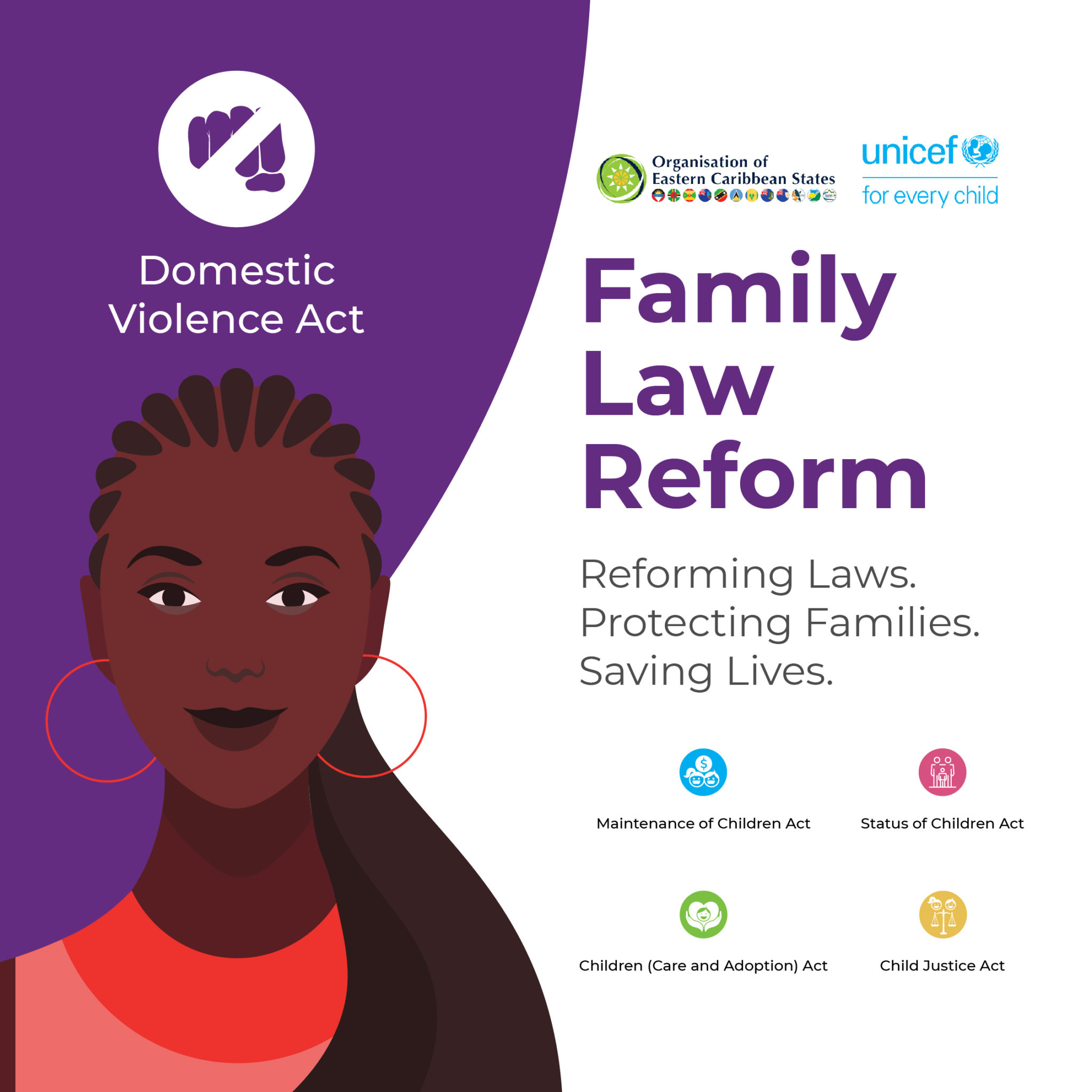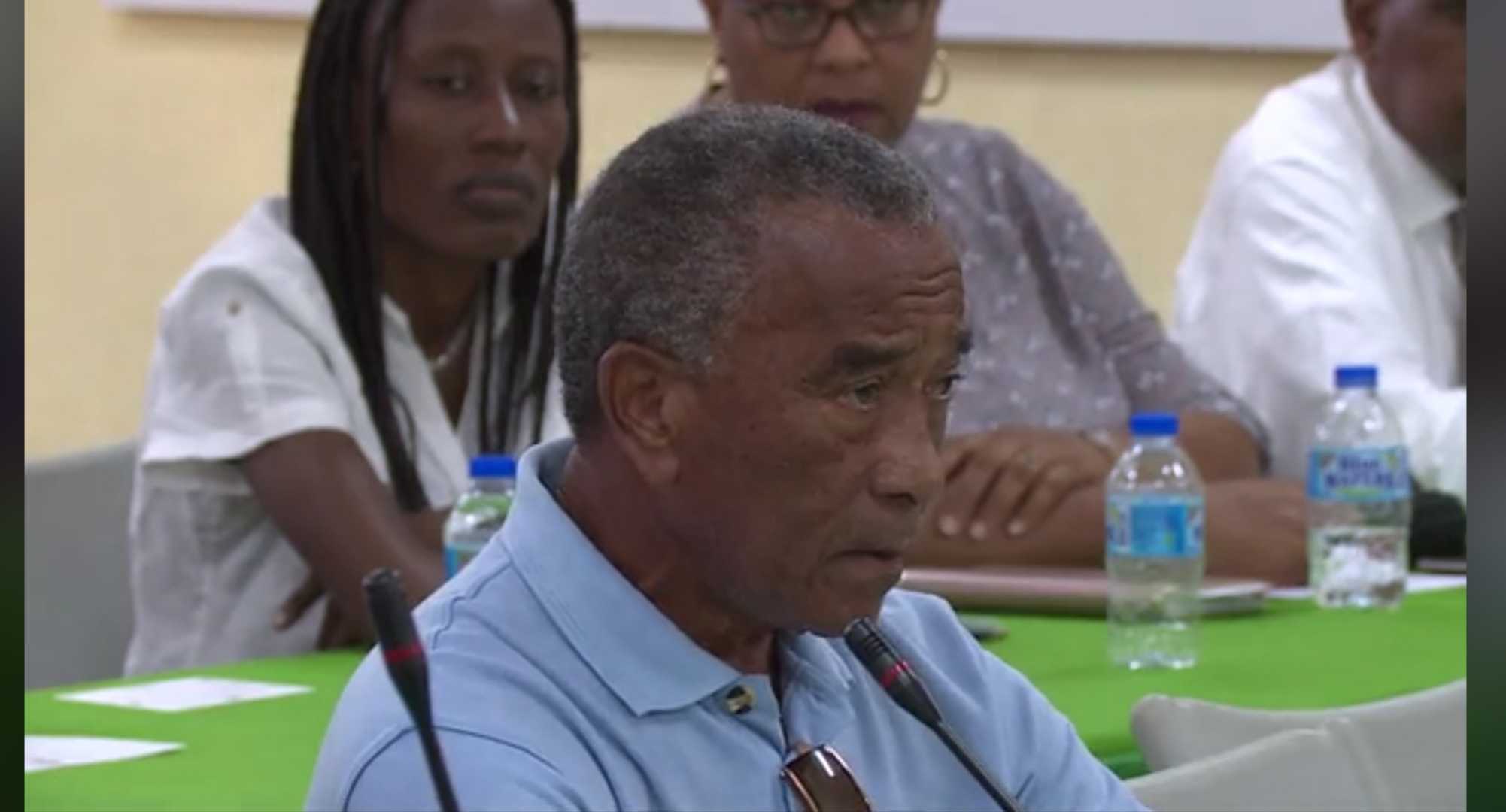
Implemented by the Organisation of Eastern Caribbean States (OECS) Commission, through its Social Development Unit, in partnership with the United Nations Children’s Fund (UNICEF) and the Governments of seven OECS Member States, the Family Law Reform Project aims to increase the capacity of the judicial and legal system by providing laws which make fundamental shifts in the protection of women, children and the family.
- marriage;
- divorce and separation;
- spousal maintenance;
- property interests;
- children;
- maintenance for children;
- status of children;
- paternity;
- custody and access;
- adoption of children;
- succession;
- cohabitation relationships; and
- domestic violence.
A promotional campaign will be launched soon to raise awareness on the rights of citizens of the OECS under the Family Law Reform.
The campaign has been jointly coordinated by the OECS and UNICEF and will be developed in the OECS Member States where the passage of the new legislation is being completed: Antigua and Barbuda, the Commonwealth of Dominica, Grenada, Montserrat, St. Kitts and Nevis, Saint Lucia, St. Vincent and the Grenadines and Anguilla.
The OECS Family Law Reform Project commenced in 2001 as part of a broader Judiciary and Legal Reform Project geared towards harmonising Family Legislation in the Eastern Caribbean. The work undertaken under the Family Law Reform Project has been influenced by three major factors:
- the increased number of families that are not organised around the institution of marriage;
- the negative impact of professional mobility of one or both parents within the Eastern Caribbean or outside of the region on children; and
- the necessity to comply with the conventions to which OECS Member States are signatory including the Convention on the Elimination of all Forms of Discrimination Against Women (CEDA W), the United Nations Convention on the Rights of the Child and the Inter-American Convention on the Prevention, Punishment, and Eradication of Violence Against Women.






